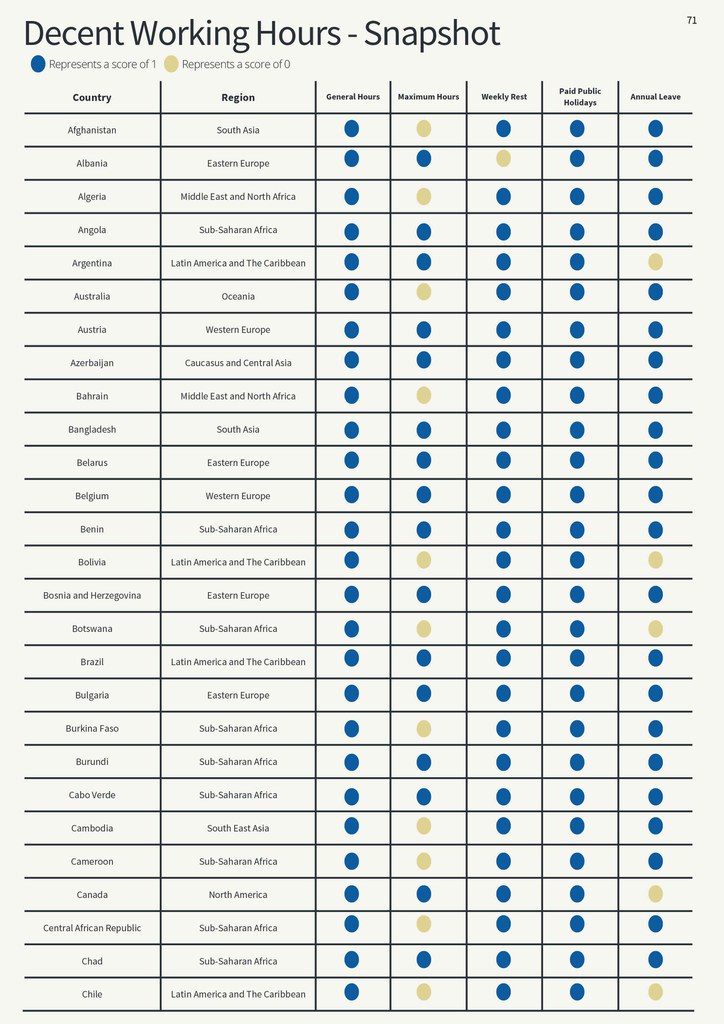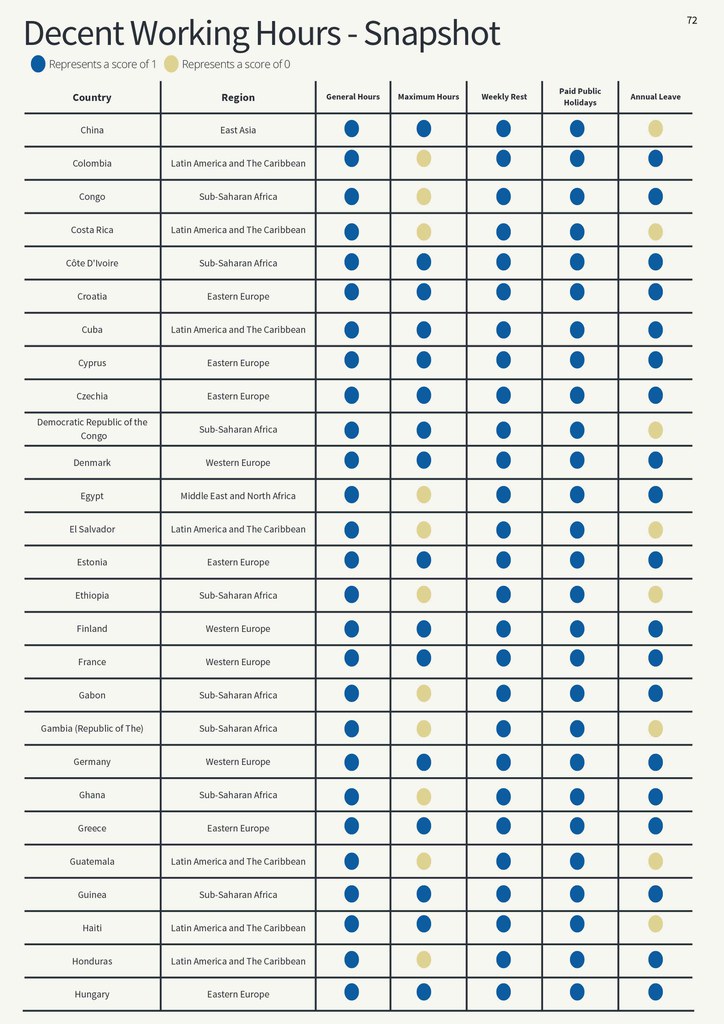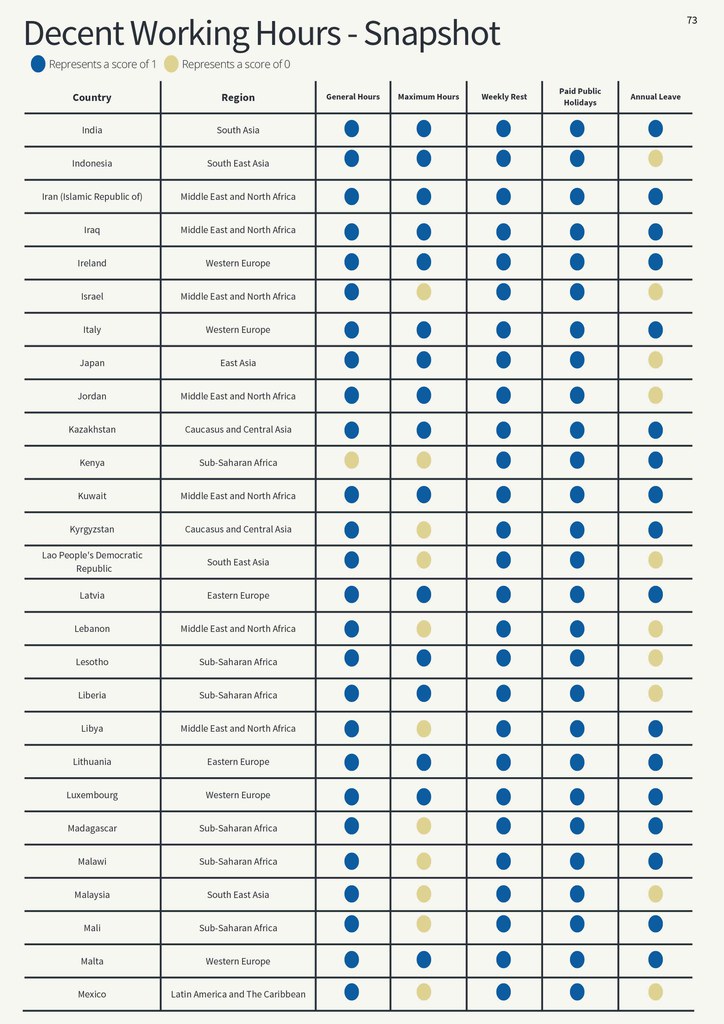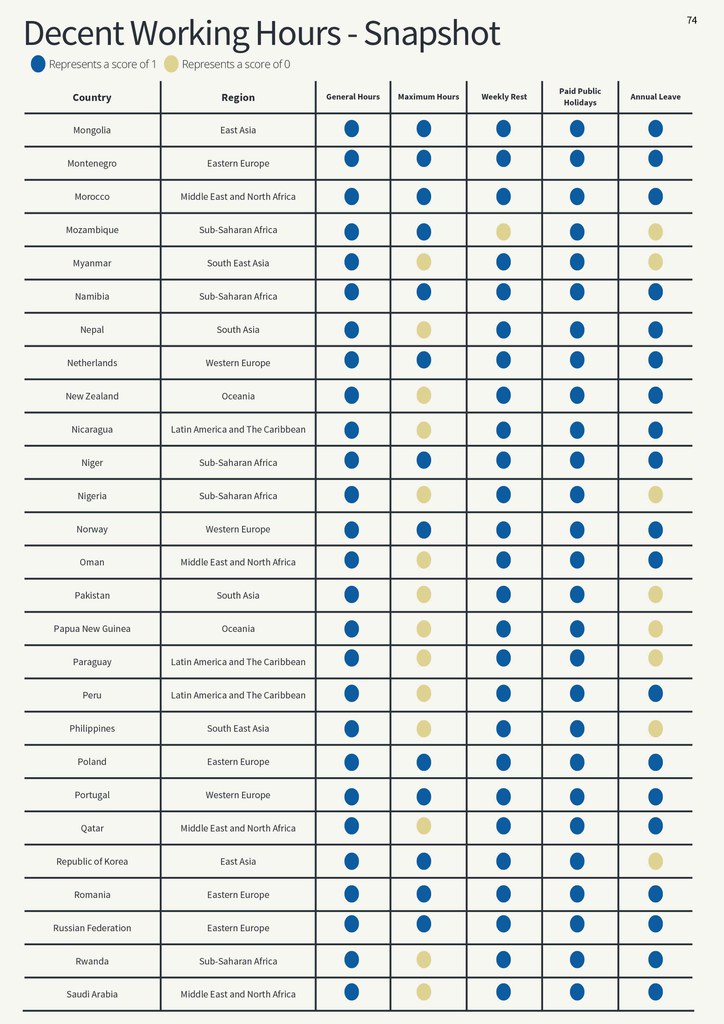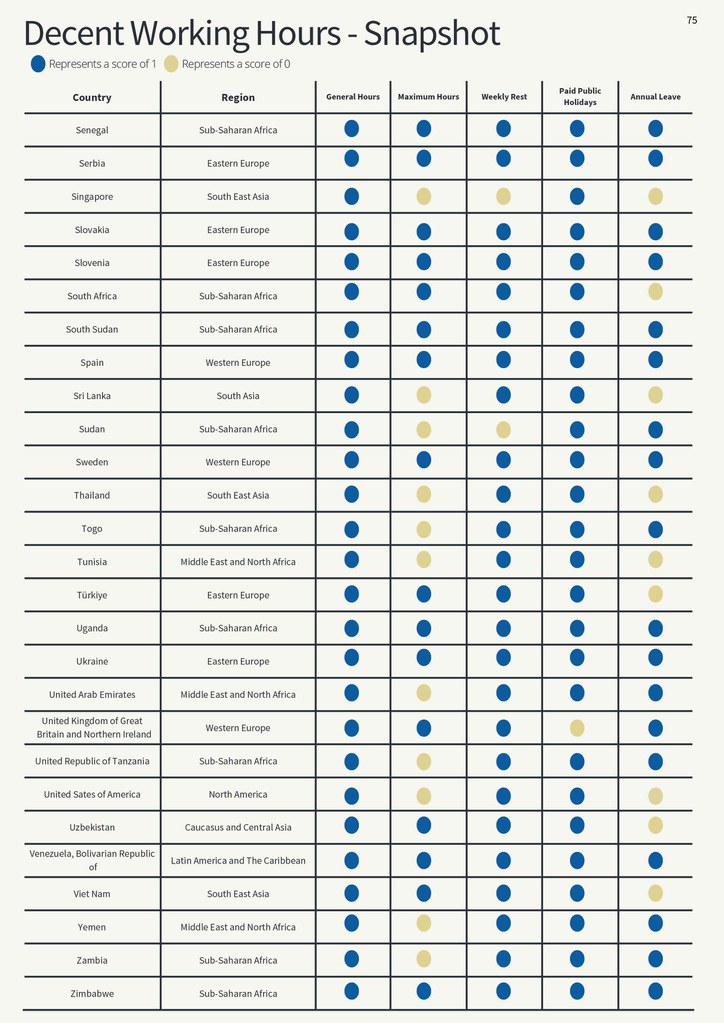Decent Working Hours
The Decent Working Hours indicator measures whether workers' health and well-being are preserved while ensuring their productivity and motivation.
It assesses the law on working hours, overtime and the paid rest days - weekly rest, public holidays and annual leaves.
2.1 General Weekly Working Hours
Does the law stipulate general working hours as 48 hours or lower?
International Regulatory Standard
- Hours of Work (Industry) Convention 1919 (No. 1)
- Hours of Work (Commerce and Offices) Convention 1930 (No. 30)
- Forty-Hour Week Convention, 1935 (No. 47)
Articles 2 and 3 of C001 and C030 state that the working hours of employed persons should not exceed eight in the day and forty-eight in the week. Article 1 (C047) approves of a forty- hour week which is applied in a way so as not to reduce the living standard. C001 stated the exception; the provision on the forty-eight hours' threshold does not apply to supervisory, management, confidential positions, or whereby law, custom or agreement between employers’ and workers’ organisations or employers’ and workers’ representatives vary the daily hours limit (but not more than nine hours), or where shift workers are employed in excess of eight hours in a day and forty-eight hours in a week if the average hours over three weeks do not exceed eight per day and forty-eight per week.
Methodology
Whether labour legislation limits general working hours to 48 hours per week:
1: General working hours do not exceed 48 hours per week.
0: No restriction on weekly working hours or if general working hours are more than 48 hours per week.
34% of the 135 countries allow 48 hours as the general working hours. Kenya is the only country which sets working hours above 49 hours.
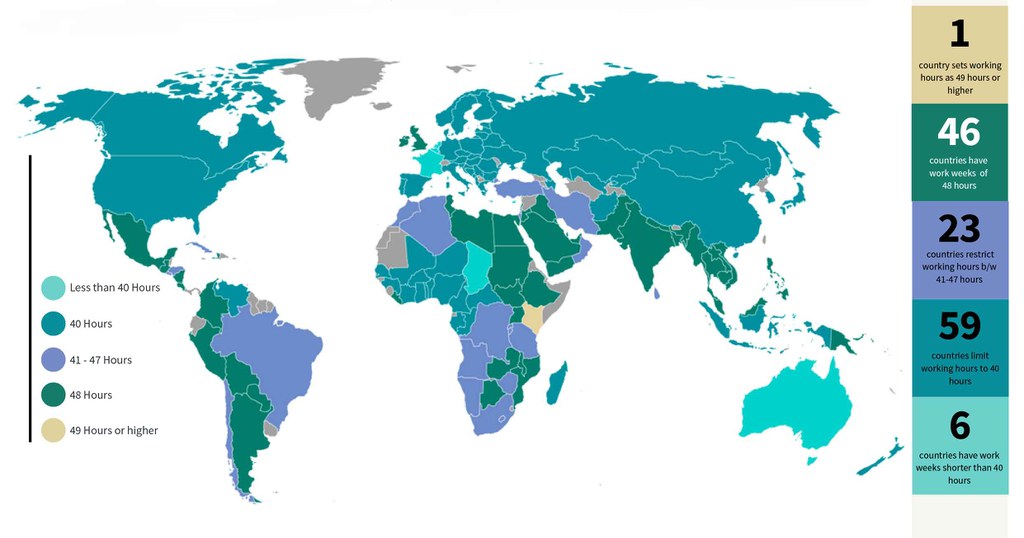
2.2 Maximum Weekly Working Hours
Does the law restrict maximum working hours, including overtime, to 56 hours per week?
International Regulatory Standard
The component, maximum weekly working hours, is grounded in Para 17 of the Reduction of Hours of Work Recommendation, 1962 (No. 116), Article 6(2) of Hours of Work (Industry) Convention 1919 (No. 1) and Article 7(3) of the Hours of Work (Commerce and Offices) Convention 1930 (No. 30).
Recommendation 116 mentions that the competent authority of every country should determine limits to the total number of overtime hours, except for cases of force majeure, worked during a specified period. C001 and C030 make it necessary for regulations (only after consultation with the organisations of employers and workers concerned) to fix the maximum of additional hours in each instance, aside from temporary exceptions, and the overtime pay rate to be not less than one and one-quarter times the regular rate.
Methodology
Whether labour legislation limits maximum working hours to 56 hours per week:
1: Total working hours inclusive of overtime do not exceed 56 hours per week.
0: Total working hours are more than 56 hours per week, or no relevant provision is found in the legislation.
10% of the 135 countries do not set maximum weekly hour limits.
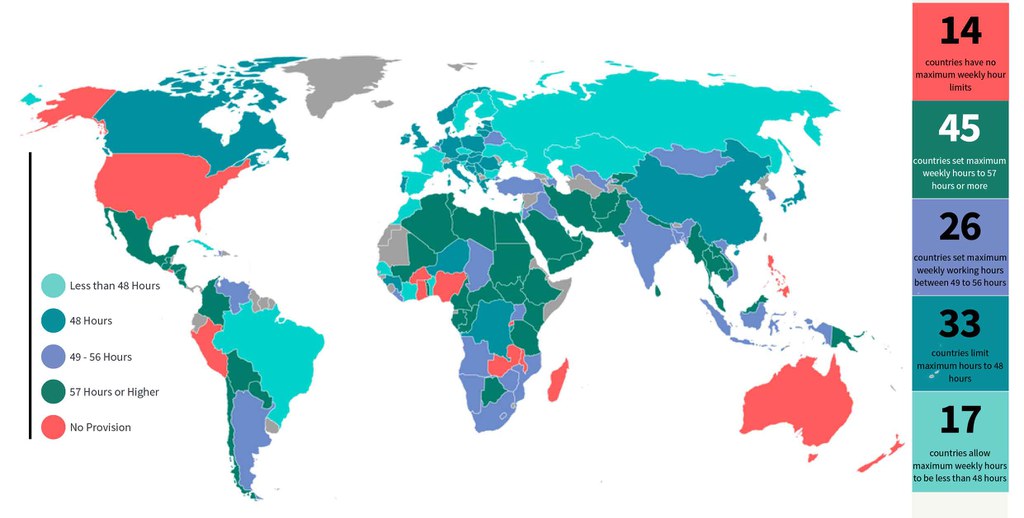
2.3 Weekly Rest Hours
Does the law require a weekly rest of at last 24 consecutive hours?
International Regulatory Standard
Article 2 of Weekly Rest (Industry) Convention 1921 and Article 6 of Weekly Rest (Commerce and Offices) Convention 1957 stipulates that every seven days, a weekly rest (comprising at least 24 consecutive hours) be granted simultaneously to all workers in every establishment. It should be fixed to coincide with the days already established by the traditions or customs of the country or district.
Methodology
Whether the labour legislation requires a weekly rest of at least 24 hours:
1: Workers have the right to a weekly rest of a minimum of 24 consecutive hours.
0: Labour legislation does not require a weekly rest day.
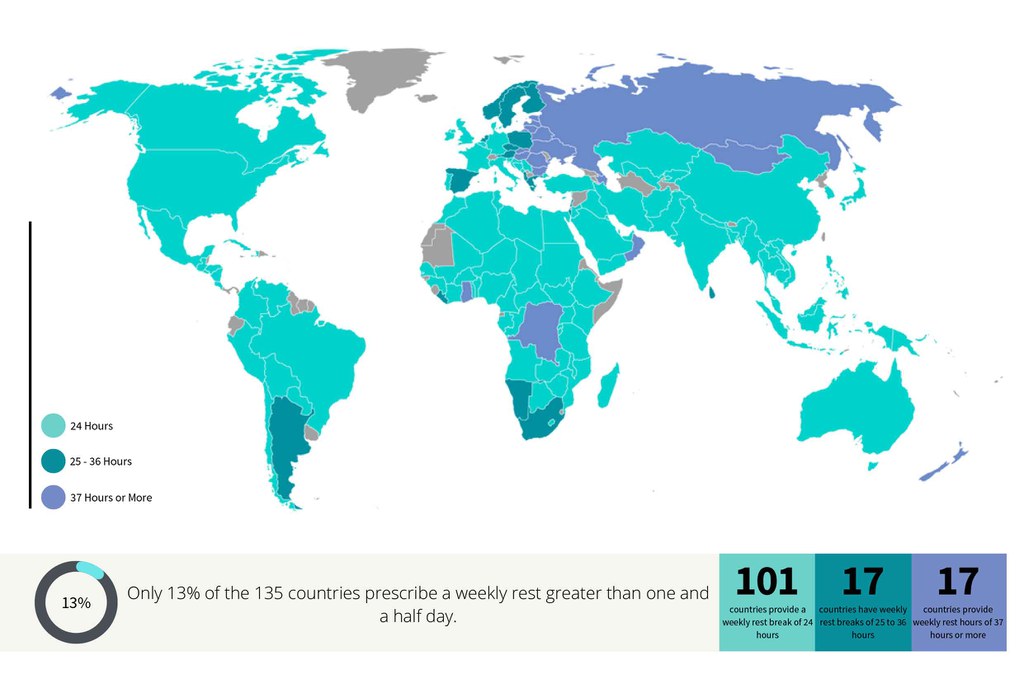
2.4 Paid Public Holidays
Does the law require paid public holidays?
International Regulatory Standard
It is stated in Article 7 (d) of the International Covenant on Economic, Social and Cultural Rights, 1966 that it is the right of everyone to enjoy just and favourable conditions of work that entail rest, leisure and remuneration for public holidays.
Methodology
Whether there are paid public holidays:
1: Legislation regulates paid public holidays, and there is a list of public and official holidays to follow.
0: Labour legislation does not require employers to grant a fully paid day off on public holidays.
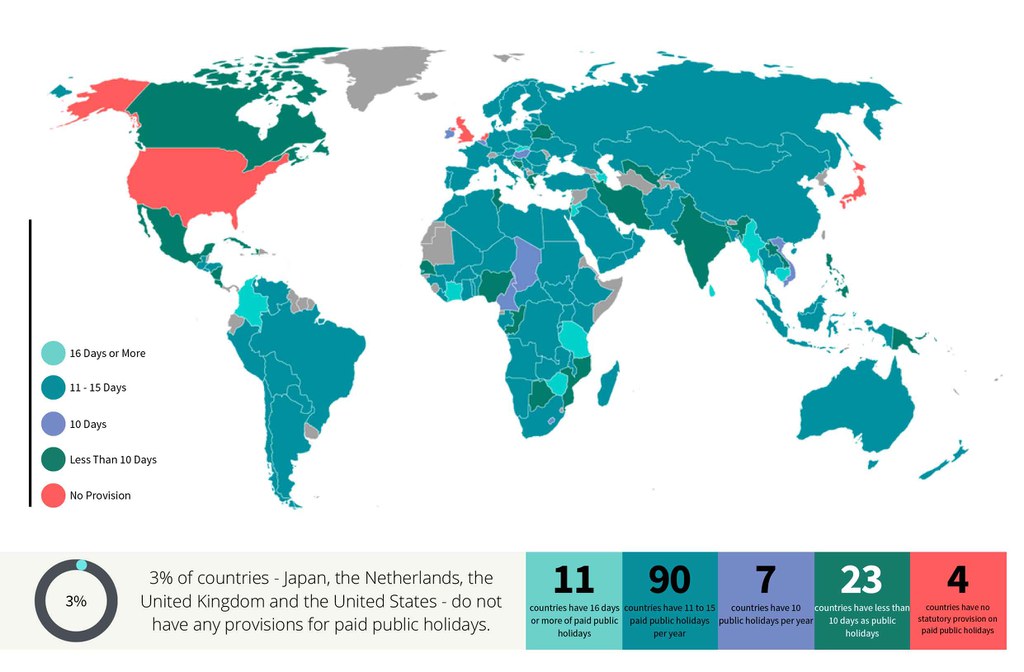
2.5 Annual Leave
Does the law require at least three working weeks of paid annual leaves?
International Regulatory Standard
Article 3 of Holidays with Pay Convention (Revised) 1970 (No. 132) requires that every person to whom this Convention applies shall be entitled to an annual paid holiday of a specified minimum length, where every Member who ratifies this Convention shall specify the length of the holiday, with the annual holiday not being less than three working weeks after one year of service.
Methodology
Whether there is paid annual leave:
1: The labour legislation requires employers to grant workers at least three working weeks of paid annual leave after completing one year of service.
0: The length of paid annual leave is less than three working weeks. A score of 0 is also assigned when the qualifying period for annual leave is more than a year.
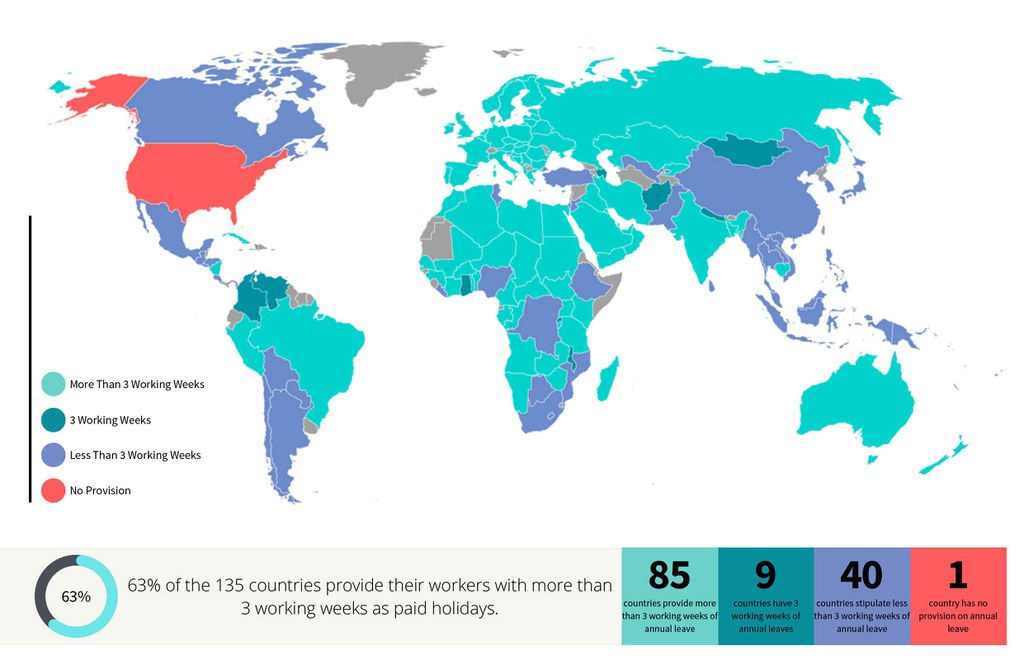
Decent Working Hours - Snapshot
